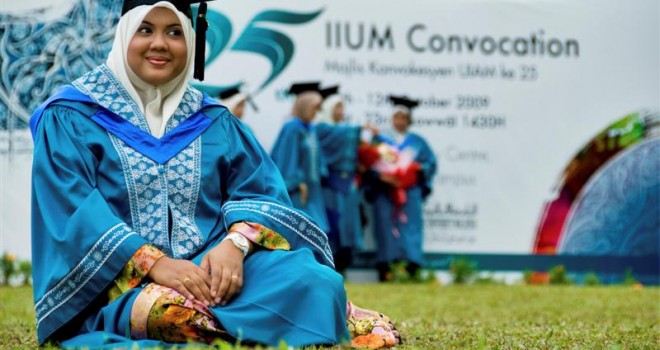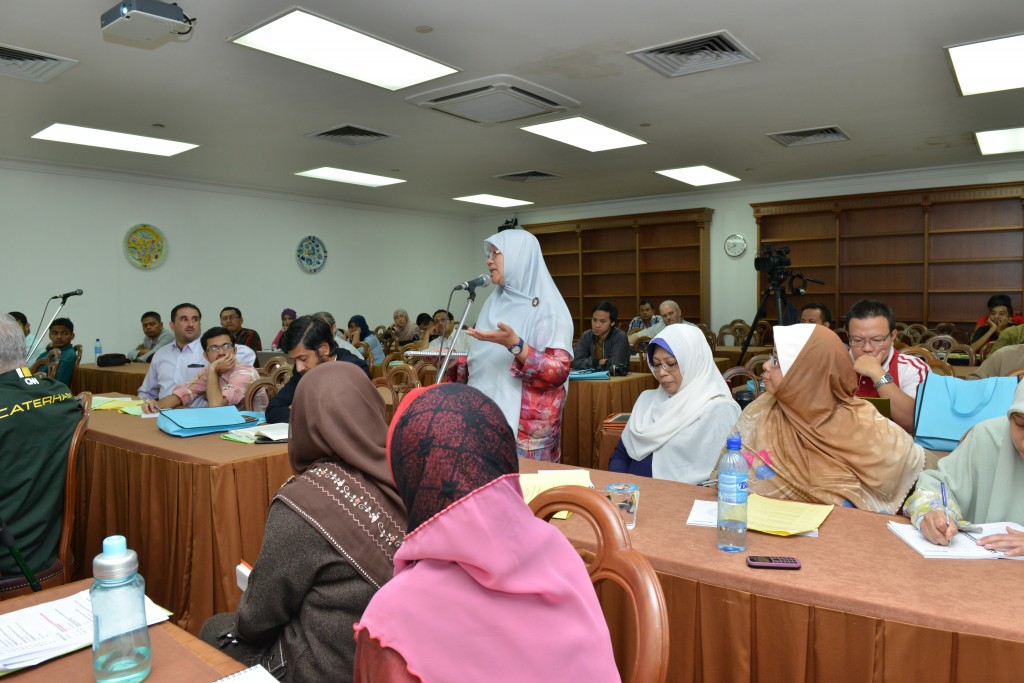
Islam&Science Workshop in Malaysia
An Islam and Science Workshop was conducted at the International Institute of Islamic Thought and Civilization, (ISTAC) in Kuala Lumpur, Malaysia from 29th November to 2nd December 2013. The workshop was one of six conducted at various venues around the world and will culminate in a 10 Day Summer School for selected participants in Paris in 2014. The program receives funding from the Templeton Foundation and is run as a joint venture by the American University of Sharjah and the Interdisciplinary University of Paris with ISTAC providing a venue and local presenters for the Malaysian workshop.
Overseas lecturers included the program organiser Nidhal Guessoum, a Professor of Physics and Astronomy and Associate Dean at the American University of Sharjah and the author of Islam’s Quantum Question. Other lecturers were Bruno Abdelhaq Guiderdoni, the Director of the Observatory of Lyon, (France), Jean Staune, a philosopher, mathematician and palaeonotologist currently teaching at the Ecole Polytechnique Federale de Lausanne, Rana Dajani, an Assistant Professor in molecular biology at the Hashemite University in Jordan and a Fulbright alumnus, and Professor Jamal Mimouni, the Vice President of the Arab Union for Astronomy and Space Sciences and Head of the Graduate Study Program in Astrophysics at Constantine University (Algeria).
Local speakers were: Distinguished Professor Mohammed Kamal Hassan from ISTAC, Ibrahim Mohamed Zein, the Dean of Kulliyah of Islamic Revealed Knowledge and Human Science at the International Islamic University, (IIUM), Kuala Lumpur, Ariff Bin Osman, Professor in Anaesthesiology at the Kulliyah of Medicine, IIUM, and Professor Abdullah Al-Ahsan from ISTAC who was the co-organiser.
The workshop discussed the dialogues taking place between modern science and religion. Muslims with the last revelation and recognition of previous ones are in an excellent position for participating in this dialogue but are not as involved as they should be. The need for a new generation of Muslim scholars equipped to join this dialogue was stressed. The workshop aimed to provide a base for building the knowledge and skills necessary for this to happen. Speakers emphasised that we cannot discuss the relevance of today’s science to Islam, especially controversial aspects, without understanding science correctly. Participation in the debates also requires revisiting theology and philosophy and further developing them in this context. Various methods of reconciling the two were discussed. Ibn Rushd’s approach to seeking harmony outlined in his Kitāb faṣl al-maqāl was recommended.
In a series of densely packed lectures, the following general topics were included: the history of Islam and science and its present and future state, and the place of science and religion in the world and various paradigms of science. Controversial topics such as the theory of evolution were also covered from a number of directions with alternative ideas and objections also presented. Evolution is not the only scientific concept with the potential for controversy; the theological implications of the Big Bang and the search for other earths were also discussed. Finally, the science presentations were balanced with lectures on the need to appreciate science from a Qur’anic worldview and the question of Islam and scientific philosophy.
As a demonstration of the utility of modern science in resolving problems in practising Islam, lectures by Nidhal Guessoum demonstrated how modern astronomy could resolve the problems of sighting the moon and of determining prayer times in extreme latitudes where there is no sunrise or sunset or insufficient time before or after them for morning or evening prayers and for fasting during Ramadan. The problems of human impacts on the planet were also discussed and the role of Islam in providing an ethical approach to these and other issues was emphasised.
Question time was lively as was discussion during breaks. It was clear that many participants came away with food for some serious thought on the relationship between Islam and science. The workshop was a welcome opportunity for Malaysians to participate in an important international effort to foster a better understanding of modern science in the Muslim world.
By Gary Dargan.


